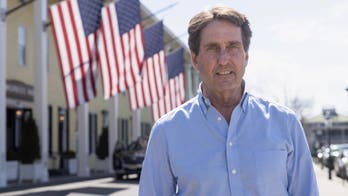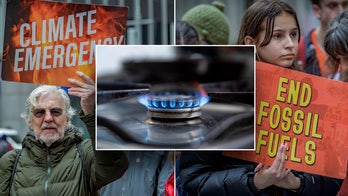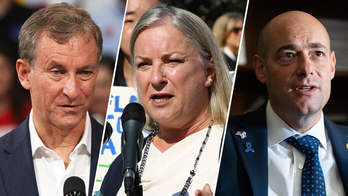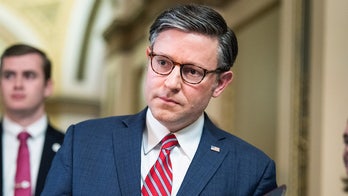Dr. Thomas Inglesby on how long Americans should expect the coronavirus crisis to last
Dr. Thomas Inglesby, director of the Center for Health Security at Johns Hopkins University, shares insight with Chris Wallace on 'Fox News Sunday.'
Get all the latest news on coronavirus and more delivered daily to your inbox. Sign up here.
Dr. Thomas Inglesby, director of the Johns Hopkins Center for Health Security, warned that the U.S. is "still at the beginning" of the coronavirus outbreak, and outlined five conditions that must be met before the country should consider relaxing social distancing practices.
Inglesby noted that a lot of the necessary information remains unknown, which makes it "hard to predict" a date for this, but pointed to the need for greater resources for medical professionals and signs of fewer cases in at least part of the country as necessary factors before life starts to go back to normal.
“When we see a state or region have numbers that go down over time, and when we have diagnostics in place, and when we have masks available for all of our doctors and nurses who are putting their lives at risk to take care of sick patients, and hospitals are well-prepared, and when we can get our public health systems in place to start tracing or identifying individuals and start tracing their contacts, again like they do in Asia --- I think those five major conditions --- then I think it’s a time to begin to think about how we might experiment with lightening social distancing, perhaps one step at a time.”
Based on what has happened elsewhere, Inglesby said the U.S. may have a better grasp of the situation in another two weeks.
“At that point, I think we could begin to look for the conditions that might make it safe to begin to lower our social distancing, but not until then.
While more information may be available by then, however, Inglesby reinforced the need for social distancing, as he believes the outbreak is still only in its early stages.
CLICK HERE FOR FULL CORONAVIRUS COVERAGE
“I think unfortunately we are still at the beginning of this outbreak and we should expect that to continue for some time and really focus on social distancing as one of our main interventions in trying to slow it,” he said.
Inglesby disagreed with President Trump’s suggestion that certain parts of the country that have not been hit as hard should begin resuming normal life soon.
“At this point we are seeing numbers go up around the country pretty consistently — there isn’t really any place in the country where we are seeing numbers go down. And we wouldn’t expect to have had enough time for social distancing to change the numbers. So I don’t think we have had nearly enough time for these measures to take full effect.”
The president stated that in some areas people would be able to go to work as long as they take social distancing precautions and remain vigilant about hygiene. When asked about whether this could be effective, Inglesby pointed to Italy as evidence for why it would not work.
CLICK HERE FOR THE FOX NEWS APP
“I don’t think so," he said. "I think we’ve seen in Italy, for example, which is a number of weeks ahead of the United States in terms of its epidemic, that even with very serious, very aggressive social distancing measures where people have been kept at home, schools have been closed, everyone is recommended not to leave their homes, that this disease has continued to spread and is causing national crisis.”
Inglesby did say that when the situation sufficiently improves, some parts of the country could reopen sooner than others.





